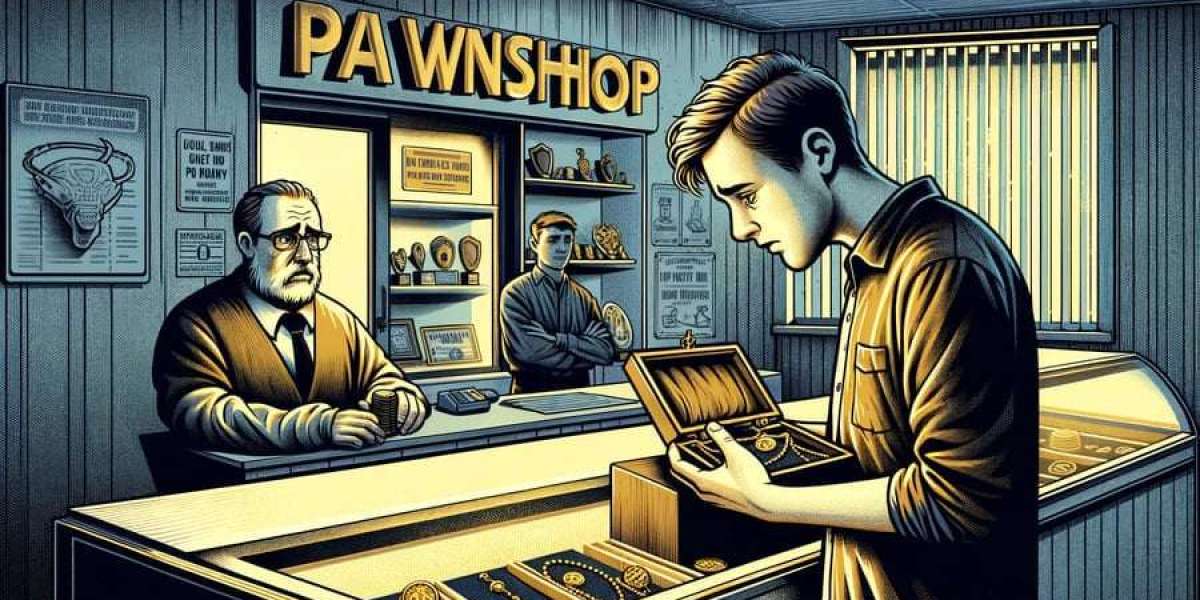Retail Pharmacy: Bridging Health and Everyday Life
In today’s fast-paced world, where convenience often defines our choices, retail pharmacies have emerged as more than just places to pick up prescriptions. These pharmacies are now essential community hubs—offering not only medicines but also a reassuring human connection in the healthcare journey. For many people, a visit to the local pharmacy is the first step in understanding and managing their health. It's where science meets empathy, and service meets care.
More Than Just Pills on Shelves
When you think of a retail pharmacy, images of shelves lined with medicine bottles might come to mind. But these establishments have quietly transformed into holistic wellness centers. Whether you're buying over-the-counter pain relief, checking your blood pressure at a kiosk, getting a flu shot, or asking a pharmacist about possible side effects of a new prescription—retail pharmacies are making healthcare more accessible and immediate.
What truly distinguishes retail pharmacies is their everyday presence. Unlike hospitals or clinics, there’s no need for an appointment. They are woven into the rhythm of daily life—inside supermarkets, corner shops, and shopping centers—making them both approachable and dependable.
The Human Face of Healthcare
A defining characteristic of retail pharmacies is the human touch they provide. Pharmacists are often among the most trusted healthcare professionals in a community. They greet people by name, remember regular customers' conditions, and offer a listening ear along with informed advice.
This personal rapport is particularly important for patients managing chronic conditions such as diabetes, hypertension, or asthma. A pharmacist might be the first to notice if a patient is overdue for a refill, or if there’s a pattern in medication non-compliance. With a gentle nudge or a kind conversation, they play a subtle but crucial role in helping people stay on track with their treatment plans.
Expanding Services and Roles
Retail pharmacies are no longer just dispensaries; they’re evolving into primary care points. Many now offer health screenings for cholesterol, glucose levels, and even infectious diseases like COVID-19 and influenza. Vaccinations have become a major part of their service model. In some countries, pharmacists are trained to administer travel vaccines, contraceptive injections, and even minor emergency care.
With the rising demand for mental health support, pharmacists are also stepping into that gap—offering preliminary guidance, referrals, and compassionate conversations in moments when someone might be too overwhelmed to seek formal therapy.
Technology at the Counter
The digital transformation in healthcare hasn’t skipped over retail pharmacies. From automated refill reminders and mobile apps for medication tracking to online consultations and home delivery services, the integration of technology has greatly improved patient convenience and safety.
E-prescriptions have minimized errors, and digital records help pharmacists catch potential drug interactions or allergy risks before the medication reaches the patient’s hands. Many pharmacies also offer telehealth booths or video consultations, bridging rural-urban gaps in healthcare access.
Community Impact and Education
Retail pharmacies are often the most visible arm of healthcare in underserved or rural areas. In such regions, pharmacists may be the only healthcare professionals accessible on short notice. Their role in community education is immense—whether it's demystifying generic medications, explaining antibiotic resistance, or promoting vaccination awareness.
They also support public health during crises. During the COVID-19 pandemic, for instance, retail pharmacies played a vital role in testing, vaccination drives, and dispelling misinformation.
Challenges Behind the Counter
Despite their growing importance, retail pharmacists often face considerable challenges. From dealing with increasing workloads and inventory shortages to navigating insurance policies and regulatory red tape, the job is far from easy. There is also the emotional burden of being the first line of contact for people who are sick, scared, or grieving.
Moreover, the retail aspect of these businesses often blurs the lines between commerce and care. Pharmacists must balance profit margins with ethical duty—a tightrope walk that demands both compassion and professionalism.
The Future is Collaborative
Looking ahead, the role of retail pharmacies is poised to grow even further. As healthcare systems worldwide shift toward patient-centered, community-based models, retail pharmacies are uniquely positioned to lead this transformation. Through collaborations with hospitals, physicians, and public health bodies, pharmacies can offer integrated care, preventive services, and chronic disease management.
Pharmacists are also increasingly being included in clinical research trials and medication therapy management programs. Their real-world insights from the counter can influence healthcare policies and improve treatment outcomes.
Browse More Reports:
South America Life Sciences Bpo
Retail Pharmacy: Bridging Health and Everyday Life
In today’s fast-paced world, where convenience often defines our choices, retail pharmacies have emerged as more than just places to pick up prescriptions. These pharmacies are now essential community hubs—offering not only medicines but also a reassuring human connection in the healthcare journey. For many people, a visit to the local pharmacy is the first step in understanding and managing their health. It's where science meets empathy, and service meets care.
More Than Just Pills on Shelves
When you think of a retail pharmacy, images of shelves lined with medicine bottles might come to mind. But these establishments have quietly transformed into holistic wellness centers. Whether you're buying over-the-counter pain relief, checking your blood pressure at a kiosk, getting a flu shot, or asking a pharmacist about possible side effects of a new prescription—retail pharmacies are making healthcare more accessible and immediate.
What truly distinguishes retail pharmacies is their everyday presence. Unlike hospitals or clinics, there’s no need for an appointment. They are woven into the rhythm of daily life—inside supermarkets, corner shops, and shopping centers—making them both approachable and dependable.
The Human Face of Healthcare
A defining characteristic of retail pharmacies is the human touch they provide. Pharmacists are often among the most trusted healthcare professionals in a community. They greet people by name, remember regular customers' conditions, and offer a listening ear along with informed advice.
This personal rapport is particularly important for patients managing chronic conditions such as diabetes, hypertension, or asthma. A pharmacist might be the first to notice if a patient is overdue for a refill, or if there’s a pattern in medication non-compliance. With a gentle nudge or a kind conversation, they play a subtle but crucial role in helping people stay on track with their treatment plans.
Expanding Services and Roles
Retail pharmacies are no longer just dispensaries; they’re evolving into primary care points. Many now offer health screenings for cholesterol, glucose levels, and even infectious diseases like COVID-19 and influenza. Vaccinations have become a major part of their service model. In some countries, pharmacists are trained to administer travel vaccines, contraceptive injections, and even minor emergency care.
With the rising demand for mental health support, pharmacists are also stepping into that gap—offering preliminary guidance, referrals, and compassionate conversations in moments when someone might be too overwhelmed to seek formal therapy.
Technology at the Counter
The digital transformation in healthcare hasn’t skipped over retail pharmacies. From automated refill reminders and mobile apps for medication tracking to online consultations and home delivery services, the integration of technology has greatly improved patient convenience and safety.
E-prescriptions have minimized errors, and digital records help pharmacists catch potential drug interactions or allergy risks before the medication reaches the patient’s hands. Many pharmacies also offer telehealth booths or video consultations, bridging rural-urban gaps in healthcare access.
Community Impact and Education
Retail pharmacies are often the most visible arm of healthcare in underserved or rural areas. In such regions, pharmacists may be the only healthcare professionals accessible on short notice. Their role in community education is immense—whether it's demystifying generic medications, explaining antibiotic resistance, or promoting vaccination awareness.
They also support public health during crises. During the COVID-19 pandemic, for instance, retail pharmacies played a vital role in testing, vaccination drives, and dispelling misinformation.
Challenges Behind the Counter
Despite their growing importance, retail pharmacists often face considerable challenges. From dealing with increasing workloads and inventory shortages to navigating insurance policies and regulatory red tape, the job is far from easy. There is also the emotional burden of being the first line of contact for people who are sick, scared, or grieving.
Moreover, the retail aspect of these businesses often blurs the lines between commerce and care. Pharmacists must balance profit margins with ethical duty—a tightrope walk that demands both compassion and professionalism.
The Future is Collaborative
Looking ahead, the role of retail pharmacies is poised to grow even further. As healthcare systems worldwide shift toward patient-centered, community-based models, retail pharmacies are uniquely positioned to lead this transformation. Through collaborations with hospitals, physicians, and public health bodies, pharmacies can offer integrated care, preventive services, and chronic disease management.
Pharmacists are also increasingly being included in clinical research trials and medication therapy management programs. Their real-world insights from the counter can influence healthcare policies and improve treatment outcomes.
Browse More Reports:
South America Life Sciences Bpo



